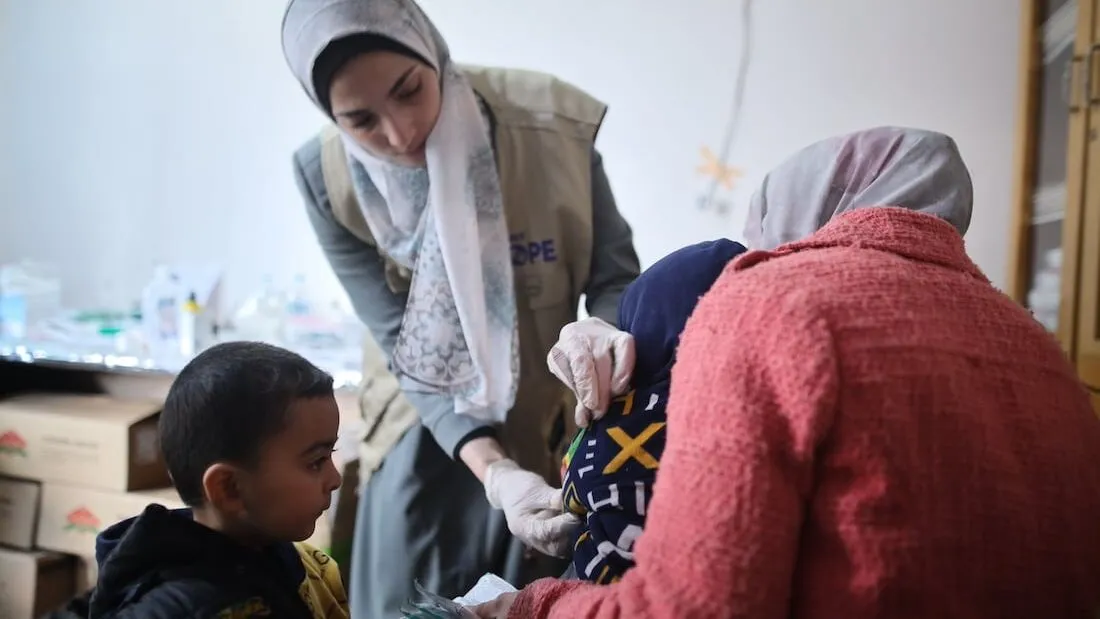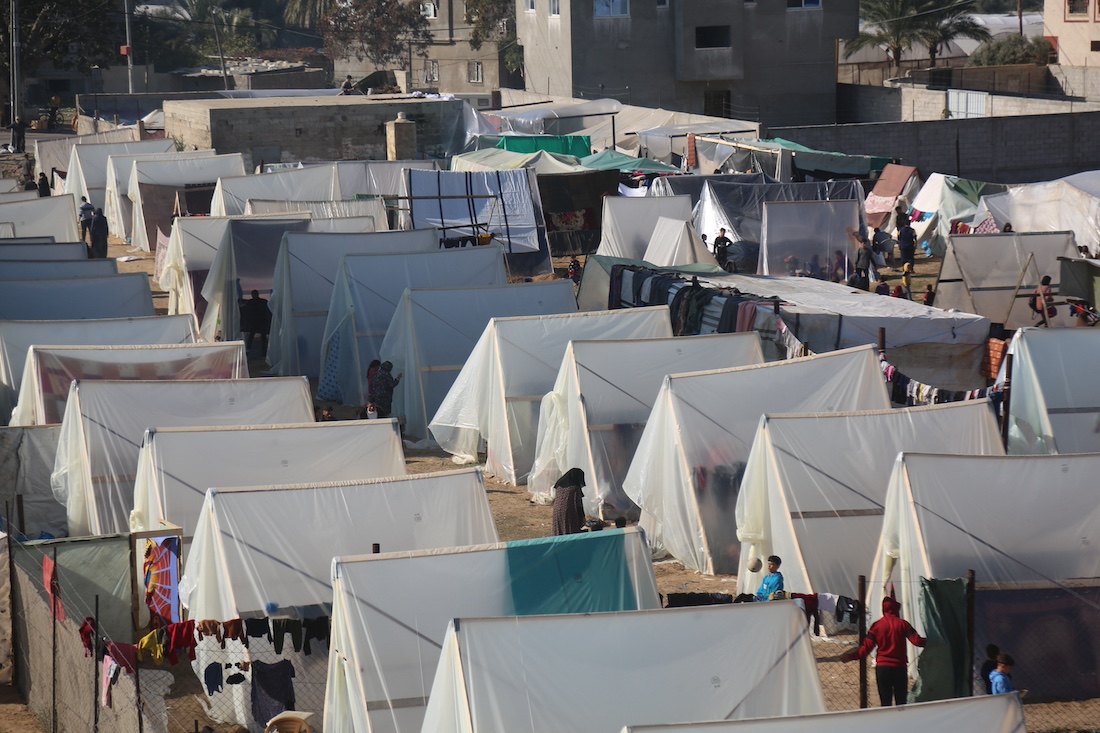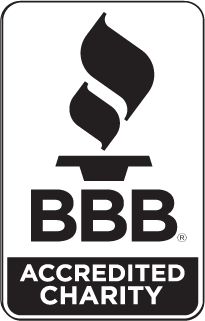I Recently Returned from Gaza. This Is What It’s Like to Be Pregnant There.
Right now, 60,000 pregnant women inside Gaza are vulnerable, hungry, and scared. We may not know the true impact for years.

I made my way through crowds of people in the informal tent settlement, looking for the health clinic, the shelters pressed so tightly together that there was barely room to walk. Within a few minutes, a crowd of women came into vision, standing together in a group waiting to see a midwife or doctor. These women — tense, some carrying babies — told me that they had not been able to find health care, that this new tent facility provided some hope, and that now maybe they and their sick babies would receive the care they needed.
A few steps away, I was taken to see a woman lying in a small tent with a newborn baby next to her. I was told she had given birth by cesarean section a few hours before and had been sent home with no pain medicine. She received us, sharing her story, and asked for help to support her as she cared for her baby. These early discharges increase the risk of infection and interfere with establishing breastfeeding, which is critical to the newborn’s survival.
Pregnancy is an exciting time for most women: there are visits to the midwife or doctor, check-ups to make sure the growing baby is healthy, lessons for the best self-care, and preparations for a birth experience that meets the values and ideals of the woman and her partner.
It’s a time to be surrounded by care, respect, and safety — at least for women living in high resource settings.
For many women in the world, particularly those in fragile and conflict settings, pregnancy is a time of extreme stress and fear over whether you can protect yourself and your baby.
That’s what it’s like right now to be pregnant in Gaza.

In February, I traveled to Gaza as part of Project HOPE’s emergency response team that is working to restore access to health care for people in Rafah and Deir al Balah. I met the nurses, doctors, medicine suppliers, and logistics teams who are all working to prepare a health facility amid the crowded streets and pathways of the tent cities that have sprung up in Rafah after the arrival of a million people displaced by the conflict.
Before the war, Gaza had over 70 health centers where women could see a midwife or doctor for pregnancy care. Now there are only six.
In Gaza there are virtually no prenatal care services for the 60,000 pregnant women enduring months of conflict. Before the war, Gaza had over 70 health centers where women could see a midwife or doctor for pregnancy care. Now there are only six. Most of the health facilities that have been set up as part of the current emergency response are focused on war injuries and trauma. And although pregnant women are affected by war trauma, those seeking well pregnancy care now have very few places to go.
Gaza had many health care providers before the war: even now, there are many doctors, nurses, and midwives in the communities ready to provide care. The problem is that they do not have access to the supplies and commodities even for basic care provision. Things like iron supplements for pregnant women, ultrasound machines to listen to the fetal heart, blood pressure cuffs, stethoscopes, family planning methods, and pediatric syrup medicines for babies have all been lost as health facilities were destroyed by the war. Much has been destroyed by the war, and the flow of aid is currently severely restricted, stressing the health system.
Most pregnant women in Gaza are likely to never have a prenatal checkup during their pregnancy. This means that no one will know if her blood pressure is high – one of the early signs of pre-eclampsia/eclampsia, the leading cause of maternal death. No one will know if she is anemic, which is made more likely by the current food scarcity and increases the risk of bleeding after birth, another big killer of women.
No one will know if she is gaining weight, if she is malnourished, if her amniotic fluid is low, if she has signs of preterm labor, if she has twins, if the baby is in the correct position, what her mental health condition is, and if she has family stress, including intimate partner violence, which we know increases in populations experiencing crises.
No one will help her to manage stress, or address early warning signs, and no one will let her know if she is in a high-risk group and needs to see a specialist.
Stress and mental health conditions such as depression and anxiety during pregnancy lead to increased miscarriage, stillbirth, and prematurity. Malnutrition does as well. As food becomes more and more scarce, and the violence spreads in all parts of Gaza, pregnant women are hungry. The number of pregnant women showing signs of acute malnutrition has increased at the clinic Project HOPE runs in Deir al Balah, with 25% of women now considered acutely malnourished. They are terrified. They need more care, not less.

Once women go into labor, if they are safe to move to the hospital, they will find overcrowded conditions with inadequate medicines. They will be discharged too early, meaning they will return to tents, often in pain, and try to establish breastfeeding with their fragile newborns, all the while caring for older children and perhaps aging family members. These women are at increased risk for post-partum depression as they face the fear of future violence that is likely to continue to devastate their community and their families — all the while knowing that at any point they may need to move again and they will never be able to go home, as many of their homes are destroyed.
During pregnancy and in the immediate post-partum period these women must walk long distances, or send their children, just to have enough water for drinking and to ensure hygiene for themselves and their newborns in the early post-partum hours and days.
And for those that cannot go to the hospital, they will be with other women, but far from the medicines and experts that know how to respond should a complication ensue.
The London School of Hygiene & Tropical Medicine estimates that given the current access to health care, maternal and neonatal mortality in Gaza has quadrupled. The truth is no one really knows. We cannot track the pregnant women in this situation. They are largely on their own, vulnerable, hungry, and scared.
Project HOPE is working inside Gaza to provide critical, lifesaving care.
Rondi Anderson is a Senior Technical Advisor for Reproductive, Maternal, Neonatal, and Child Health at Project HOPE.







